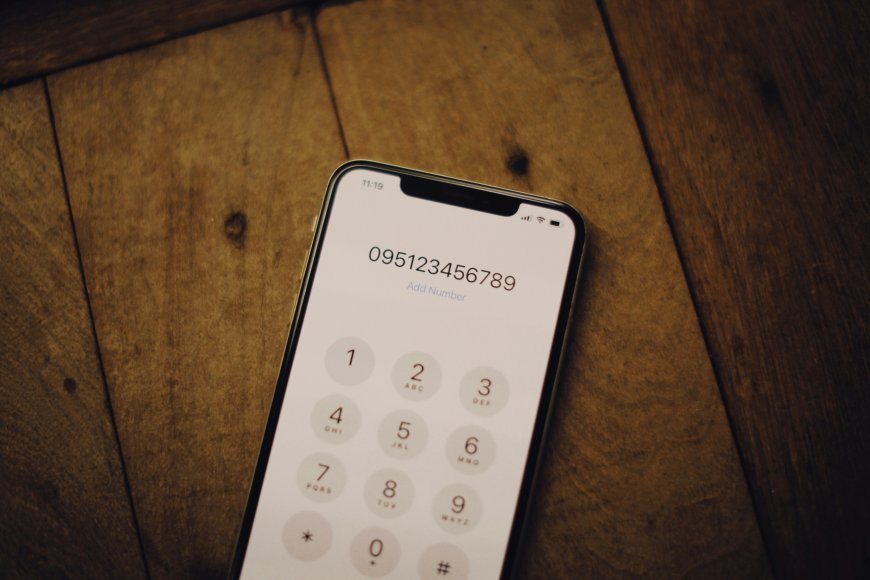How to Use US Phone Lookup Services Safely and Effectively

Every day, thousands of people across the United States receive phone calls from unknown or suspicious numbers. Whether it's a robocall, a scam attempt, or just a missed call from someone you dont recognize, the curiosity (and concern) is real. Thats why US phone lookup services have become essential tools in our digital lives.
But while these tools offer convenience and peace of mind, it's important to know how to use them safely, ethically, and effectively. In this guide, well explain how US phone lookup tools work, how to use them correctly, and what to watch out for when searching unknown numbers.
What Is a US Phone Lookup?
A US phone lookup is a reverse phone number search that helps you discover the identity behind a phone number. It works by pulling data from public directories, telecom records, user-generated reports, and sometimes even social media profiles.
Depending on the service, a lookup may reveal:
-
The callers name
-
Phone type (landline, mobile, VoIP)
-
Geographic location
-
Associated business or organization
-
Spam risk or scam reports
-
Additional contact details (on premium services)
How to Use a US Phone Lookup the Right Way
Lets walk through how to use these tools effectively:
1. Choose a Trusted Lookup Service
Not all lookup sites are created equal. Stick with reputable, secure platforms that have strong user reviews and clear privacy policies. Some of the most trusted services include:
-
BeenVerified
-
Whitepages
-
TrueCaller
-
NumLookup
-
Intelius
Always make sure the site uses HTTPS encryption to keep your search private.
2. Enter the Full 10-Digit Phone Number
Include the area code when entering the phone number to ensure accurate results. Some services also support international formats, but for US-based searches, the standard 10-digit format works best.
3. Review the Results Carefully
Most lookup tools will provide a name (or at least a first name), phone type, and caller location. If the number is flagged as spam or scam, youll often see:
-
Telemarketer
-
Scam Likely
-
Robocall
-
Debt Collector
Check any available user comments or complaints, especially if youre unsure whether to return the call.
4. Use the Information Responsibly
Phone lookup is designed for personal safety, verification, and conveniencenot stalking or harassment. Stick to ethical usage:
-
Verify the identity of a missed call
-
Confirm if a business is legit before calling back
-
Do not use the info for employment screening or credit decisions
-
Never use phone lookups to harass, dox, or intimidate someone
Safety Tips When Using Phone Lookup Services
While most lookup platforms are safe, some lesser-known ones may harvest your data or require shady permissions. Here are a few safety best practices:
Stick to Well-Known Providers
Use trusted brands like Spokeo, Whitepages, or BeenVerified. Avoid third-party apps that ask for unnecessary access to your contacts, location, or messages.
Avoid Submitting Personal Info
You typically dont need to input your name, email, or phone number to perform a lookup. If a site asks for this before showing results, it could be a red flag.
Dont Click on Suspicious Ads
Free lookup sites often run aggressive ads. Be careful not to click on pop-ups or download promptssome might be misleading or unsafe.
Use a VPN for Extra Privacy
If youre frequently using phone lookup tools, a VPN can help hide your IP address and ensure your searches remain private.
What You Canand CantFind with a Phone Lookup
What You Might Find:
-
Caller name (if publicly available)
-
Carrier and line type
-
General location (city or state)
-
Social media accounts (on advanced tools)
-
Spam ratings and call history
What You Usually Wont Find:
-
Exact address (except on premium reports)
-
Financial or credit details
-
Private text messages or call logs
-
Information on unlisted or burner phones
Who Uses US Phone Lookup Tools?
Phone lookup isnt just for tech-savvy users. People from all walks of life benefit from these services:
-
Parents: Check unknown numbers calling their kids
-
Professionals: Screen unknown business contacts
-
Online daters: Verify the identity of a match
-
Seniors: Avoid scams and robocalls
-
Real estate agents: Confirm legitimacy of leads
If you've ever asked, Who just called me from this number?youre the perfect candidate to use one.
The Rise of Robocalls and Scam Numbers in the US
In 2024 alone, Americans received over 50 billion robocallsand that number is still climbing. According to the FCC, scam calls account for billions in financial losses each year. With fraudsters using local spoofing and fake caller IDs, traditional call screening no longer works.
Thats why reverse phone lookup tools are more important than ever. They let you take control of your phone again and avoid becoming the next scam victim.
Check more: Emailnphonelist
Final Thoughts: Be Smart, Be Safe
Whether you're dodging robocalls, verifying a missed call, or researching a business contact, US phone lookup services are powerful tools for anyone with a phone. But like any tool, they work best when used correctly and ethically.
By choosing a trusted service, being aware of your own privacy, and using the results responsibly, you can make smarter decisions every time your phone rings.





































